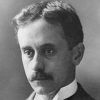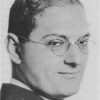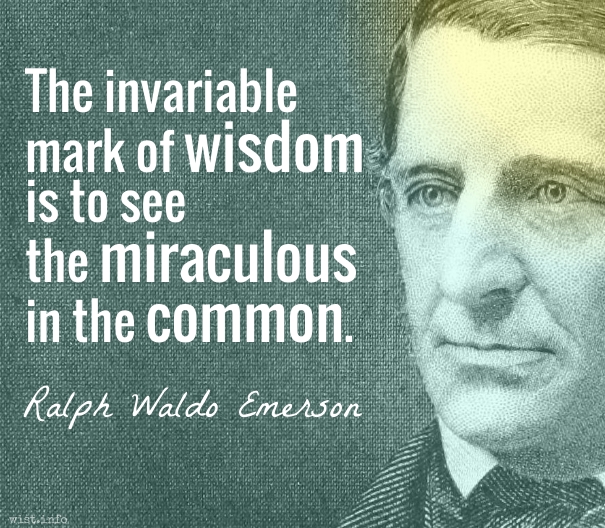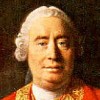Innumerable are the illusions and legerdemain-tricks of Custom: but of all these, perhaps the cleverest is her knack of persuading us that the Miraculous, by simple repetition, ceases to be Miraculous.
Thomas Carlyle (1795-1881) Scottish essayist and historian
Sartor Resartus, Book 3, ch. 8 (1831)
(Source)
Quotations about:
miracle
Note not all quotations have been tagged, so Search may find additional quotes on this topic.
“Miracles do not happen:” –‘t is plain sense,
If you italicize the present tense;
But in those days, as rare old Chaucer tells,
All Britain was fulfilled of miracles.
So, as I said, the great doors opened wide.
In rushed a blast of winter from outside,
And with it, galloping on the empty air,
A great green giant on a great green mare.Charlton Miner Lewis (1866-1923) American scholar of English literature, author
Gawayne and the Green Knight, Canto 1 (1903)
(Source)
When the heavy-handed dogmatist requires a categorical assent to the literal truth of the miraculous, in exactly the same sense in which physical facts are true, a tension between faith and reason cannot be avoided.
William Ralph Inge (1860-1954) English prelate [Dean Inge]
“Bishop Gore and the Church of England” (1908), Outspoken Essays: First Series (1911)
(Source)
It ain’t necessarily so,
It ain’t necessarily so —
De t’ings dat you li’ble
To read in de Bible —
It ain’t necessarily so.Ira Gershwin (1896-1983) American lyricist [b. Israel Gershowitz]
“It Ain’t Necessarily So,” Porgy and Bess, Act 2, sc. 2 (1935)
(Source)
The invariable mark of wisdom is to see the miraculous in the common.
Ralph Waldo Emerson (1803-1882) American essayist, lecturer, poet
“Nature,” ch. 8, Nature: Addresses and Lectures (1849)
(Source)
Whatever happens, they say afterwards, it must have been fate. People are always a little confused about this, as they are in the case of miracles. When someone is saved from certain death by a strange concatenation of circumstances, they say that’s a miracle. But of course if someone is killed by a freak chain of events — the oil spilled just there, the safety fence broken just there — that must also be a miracle. Just because it’s not nice doesn’t mean it’s not miraculous.
In our reasonings concerning matter of fact, there are all imaginable degrees of assurance, from the highest certainty to the lowest species of moral evidence. A wise man, therefore, proportions his belief to the evidence. […] No testimony is sufficient to establish a miracle, unless the testimony be of such a kind, that its falsehood would be more miraculous, than the fact, which it endeavors to establish.
But the greatest of all the Reformers of the depraved religion of his own country, was Jesus of Nazareth. Abstracting what is really his from the rubbish in which it is buried, easily distinguished by its lustre from the dross of his biographers, and as separable from that as the diamond from the dung hill, we have the outlines of a system of the most sublime morality which has ever fallen from the lips of man: outlines which it is lamentable he did not live to fill up. Epictetus & Epicurus give us laws for governing ourselves, Jesus a supplement of the duties & charities we owe to others. The establishment of the innocent and genuine character of this benevolent Moralist, and the rescuing it from the imputation of imposture, which has resulted from artificial systems,* invented by Ultra-Christian sects, unauthorized by a single word ever uttered by him, is a most desirable object, and one to which Priestley has successfully devoted his labors and learning. It would in time, it is to be hoped, effect a quiet euthanasia of the heresies of bigotry and fanaticism which have so long triumphed over human reason, and so generally & deeply afflicted mankind; but this work is to be begun by winnowing the grain from the chaff of the historians of his life.
* e.g. The immaculate conception of Jesus, his deification, the creation of the world by him, his miraculous powers, his resurrection & visible ascension, his corporeal presence in the Eucharist, the Trinity, original sin, atonement, regeneration, election, orders of Hierarchy, Etc.
Thomas Jefferson (1743-1826) American political philosopher, polymath, statesman, US President (1801-09)
Letter to William Short (31 Oct 1819)
(Source)
Read the bible then, as you would read Livy or Tacitus. The facts which are within the ordinary course of nature you will believe on the authority of the writer, as you do those of the same kind in Livy and Tacitus. The testimony of the writer weighs in their favor in one scale, and their not being against the laws of nature does not weigh against them. But those facts in the bible which contradict the laws of nature, must be examined with more care, and under a variety of faces. Here you must recur to the pretensions of the writer to inspiration from god. Examine upon what evidence his pretensions are founded, and whether that evidence is so strong as that it’s falshood would be more improbable than a change of the laws of nature in the case he relates For example in the book of Joshua we are told the sun stood still several hours. Were we to read that fact in Livy or Tacitus we should class it with their showers of blood, speaking of statues, beasts &c., but it is said that the writer of that book was inspired. Examine therefore candidly what evidence there is of his having been inspired. The pretension is entitled to your enquiry, because millions believe it. On the other hand you are Astronomer enough to know how contrary it is to the law of nature that a body revolving on it’s axis, as the earth does, should have stopped, should not by that sudden stoppage have prostrated animals, trees, buildings, and should after a certain time have resumed it’s revolution, and that without a second general prostration. Is this arrest of the earth’s motion, or the evidence which affirms it, most within the law of probabilities?
Thomas Jefferson (1743-1826) American political philosopher, polymath, statesman, US President (1801-09)
Letter to Peter Carr (10 Aug 1787)
(Source)
Miracles arise from our ignorance of nature, not from nature itself.
[Les miracles sont, selon l’ignorance en quoy nous sommes de la nature, non selon l’estre de la nature.]
Michel de Montaigne (1533-1592) French essayist
Essays, Book 1, ch. 23 “On Custom and Not Easily Changing an Accepted Law [De la Coustume et de Ne Changer Aisément une Loy Receüe]” (1588-1592) (1.23) (1595) [tr. Lowenthal (1935)]
(Source)
The original essay is from 1572; this passage was added in the "C" period, prior to Montaigne's death and the final 1595 edition. The Lowenthal translation is from an edited autobiography, drawing from the Essays and other sources.
(Source (French)). Alternate translations:
Miracles are according to the ignorance wherein we are by nature, and not according to nature's essence.
[tr. Florio (1603), ch. 22]
Miracles appear such, according to our ignorance of nature, and not according to the real essence of nature.
[tr. Cotton (1686), ch. 22]
Miracles appear to be so, according to our ignorance of nature, and not according to the essence of nature.
[tr. Cotton/Hazlitt (1877), ch. 22]
Miracles exist from our ignorance of nature, not in nature herself.
[tr. Ives (1925)]
Miracles arise from our ignorance of nature, not from the essence of nature.
[tr. Frame (1943)]
Miraculous wonders depend on our ignorance of Nature, not on the essence of Nature.
[tr. Screech (1987)]
For this is also a miracle, not onely to produce effects against, or above Nature, but before Nature; and to create Nature as great a miracle, as to contradict or transcend her. Wee doe too narrowly define the power of God, restraining it to our capacities. I hold that God can doe all things, how he should work contradictions I do not understand, yet dare not therefore deny.
Thomas Browne (1605-1682) English physician and author
Religio Medici, Part 1, sec. 27 (1643)
(Source)
Men and women have been burned for thinking there is but one God; that there was none; that the Holy Ghost is younger than God; that God was somewhat older than his son; for insisting that good works will save a man without faith; that faith will do without good works; for declaring that a sweet babe will not be burned eternally, because its parents failed to have its head wet by a priest; for speaking of God as though he had a nose; for denying that Christ was his own father; for contending that three persons, rightly added together, make more than one; for believing in purgatory; for denying the reality of hell; for pretending that priests can forgive sins; for preaching that God is an essence; for denying that witches rode through the air on sticks; for doubting the total depravity of the human heart; for laughing at irresistible grace, predestination and particular redemption; for denying that good bread could be made of the body of a dead man; for pretending that the pope was not managing this world for God, and in the place of God; for disputing the efficacy of a vicarious atonement; for thinking the Virgin Mary was born like other people; for thinking that a man’s rib was hardly sufficient to make a good-sized woman; for denying that God used his finger for a pen; for asserting that prayers are not answered, that diseases are not sent to punish unbelief; for denying the authority of the Bible; for having a Bible in their possession; for attending mass, and for refusing to attend; for wearing a surplice; for carrying a cross, and for refusing; for being a Catholic, and for being a Protestant; for being an Episcopalian, a Presbyterian, a Baptist, and for being a Quaker.
Robert Green Ingersoll (1833-1899) American lawyer, agnostic, orator
“Heretics and Heresies” (1874)
(Source)
For how can anything done by the will of God be contrary to nature, when the will of so great a creator constitutes the nature of each created thing? A portent therefore happens not contrary to nature, but contrary to what is known of nature.
[Quo modo est enim contra naturam, quod Dei fit uoluntate, cum uoluntas tanti utique conditoris conditae rei cuiusque natura sit? Portentum ergo fit non contra naturam, sed contra quam est nota natura.]
Augustine of Hippo (354-430) Christian church father, philosopher, saint [b. Aurelius Augustinus]
City of God [De Civitate Dei], Book 21, ch. 8 (21.8) (AD 412-416) [tr. Green (Loeb) (1972)]
(Source)
Commonly: "Miracles are not contrary to nature, but only contrary to what we know about nature."
(Source (Latin)). Alternate translations:
For how is that contrary to nature which happens by the will of God, since the will of so mighty a Creator is certainly the nature of each created thing? A portent, therefore, happens not contrary to nature, but contrary to what we know as nature.
[tr. Dods (1871)]
Nothing that happens by the will of God can be ‘contrary to nature.’ The ‘nature’ of any particular created thing is precisely what the supreme Creator of the thing willed it to be. Hence, a portent is merely contrary to nature as known, not to nature as it is.
[tr. Walsh/Honan (1954)]
For how can an event be contrary to nature when it happens by the will of God, since the will of the great Creator assuredly is the nature of every created thing? A portent, therefore, does not occur contrary to nature, but contrary to what is known of nature.
[tr. Bettenson (1972)]















